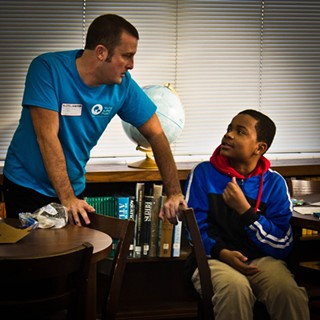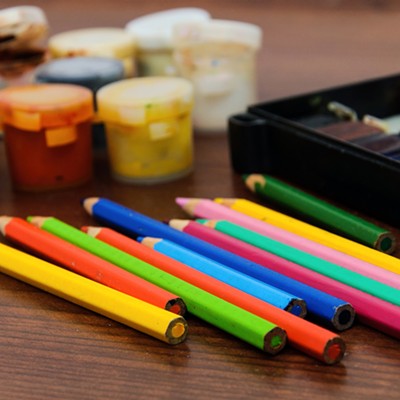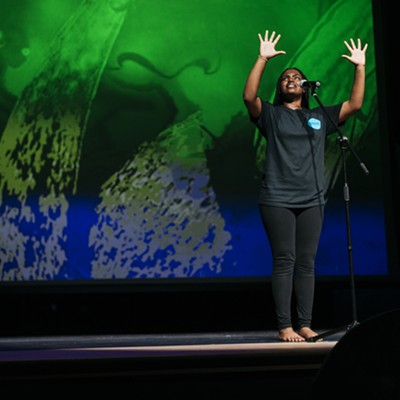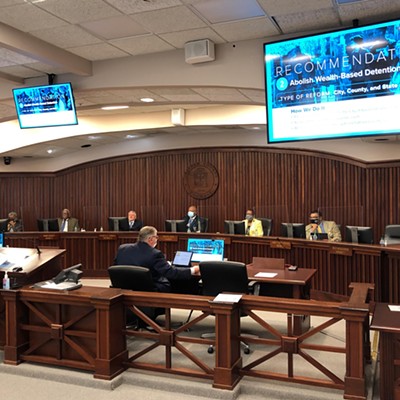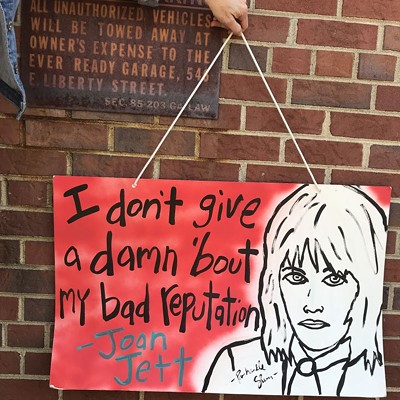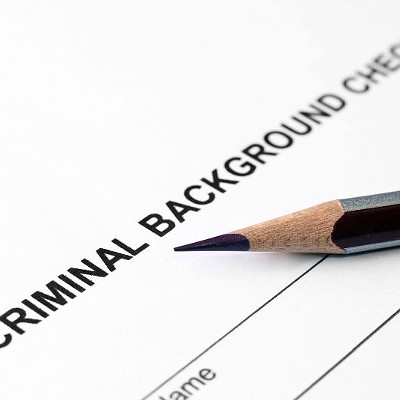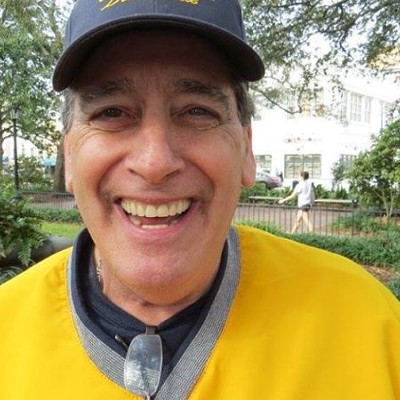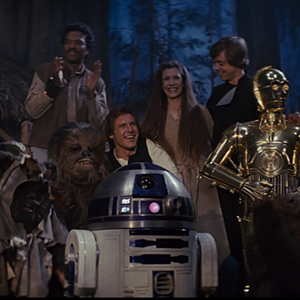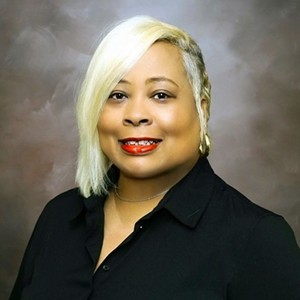As I put a gloved hand on the door of Lulu's Chocolate Bar to cover a cocktail party for this column, I am overcome by one of those small social panic attacks that precede entering a room full of strangers.
Oh god, new people. They're probably all smarter and more attractive than me. I'm going to say something stupid and inappropriate and then spill my drink down the front of my shirt and everyone will stare and judge.
I step back into the cold and fumble through my purse for a pen, which I tend to use as a pacifier in times of mental stress. I don't mean that in a figurative way, as in I use the pen to soothe my anxiety by writing out my fears as some kind of prosaic Prozac; I literally suck on the end of a pen as if bourbon-laced mother's milk is going to pour forth instead of purple ink that tastes like battery acid. (I know this from experience. Fortunately, imbibing a small amount of ink is not toxic. But it will stain your tongue for two weeks.)
Standing on the sidewalk, I nurse my Pilot Precise thoughtfully, mindfully processing this all-too-familiar stream of insecurities.
Are my new glasses too blocky and overly retro? What if the eyebrow-pierced sales nymph at the store totally lied and these are actually mom jeans? What if these new people think I look weird?
At this point, my inner grown-up, who is getting cold and a little tired of this nonsense and would rather not go around with a tongue like a Chow Chow all weekend, gently steps in to remind me:
I AM weird. I enjoy being weird. What's more, not only am I not afraid that people will think I'm weird, I have spent the last 25 or so years actively cultivating an aura of friendly weirdness in the hopes that I might inspire others to give up their fears of being weird and then we can all get down to the business of cleaning up this shitshow of a planet.
You got this, sister, I told myself. Don't pretend to know anything you don't and go rock these mom jeans like a boss.
Panic attack abated, I take a breath and step inside to find a roomful of people wearing blocky, retro glasses and chewing on pens. I feel immediately welcomed into a bear hug of weird.
I should have known. After all, this was a gathering for the volunteers and friends of Deep, the local non-profit that hosts free creative writing workshops for public middle schoolers all over Savannah. On this chilly evening with no students present, they are taking turns reading "low brow" literature—including but not limited to arrogant celebrity tweets, James Franco's poetry and excerpts from Miley Cyrus' autobiography—just for kicks.
These folks can handle weird.
They're also comfortable enough in their own skins to go back to one of the scariest places on earth and convince a bunch of teenagers to take their pens out of their mouths and put ink on the page.
As far as I'm concerned, they are literally (and literarily!) saving the world.
While the Deep mentors—called fellows—teach technical essentials like appropriate semicolon usage and how to avoid clichés, they also have a super secret mission: To show kids they're not the only ones with awkward, embarrassing parts of themselves lurking under their hoodies—and that accessing those most vulnerable, truest selves can generate the best, most authentic writing.
In other words: Weird is where the juice is, baby.
While the fellows are brave, their students are even braver, since middle school is basically the worst thing that ever happened to anybody. This isolated, self-selecting chamber of social torture seems like the last place 13 year-olds would want to share the naked creativity of their precious kitten souls, but the bond forged among DeepKids supersedes the regular Mean Girl horrors in the hallways.
"We create a space within a school that feels different, it feels safe," explains Deep Executive Director Joanna Dasher, herself bearing a lovely pair of horned-rimmed, tortoiseshell frames. "And when kids feel safe, they can write fearlessly."
"Original, vivid and fearless" is how Dasher describes the kind of award-winning writing Deep produces. Nominated for the five-year-old program by their language arts teachers, DeepKids meet with their fellows once a week after school through the spring and fall semesters, responding to prompts and refining their work.
The best of their stories and poetry are polished and then published in a real, live book. And as if putting their personal stories out into the world isn't terrifying enough (*gulp*), some of these courageous kids will tell their stories out loud at the latest Deep Speaks! Book Launch this Monday, Feb. 3 at the Savannah Theatre.
Publication serves not only as a mighty incentive to keep kids interested, it provides tangible validation of their deepest selves.
"When they see their names and their stories in print, the kids get really pumped," says Dasher, who took over Deep's daily operations last summer from founder Catherine Killingsworth, who is now teaching at Savannah Classical Academy.
"They see that they matter."
The writing can also dial into hard emotions for these kids, diffusing their anger and fear into workable prose. For too many of them, the prejudice and judgments aren't just adolescent imaginary neurosis but real bullying, and often the page is the only place to put the pain of feeling "furious, forgotten, insulted," as DeepKid Alayna Williams writes in her poem "Tape":
People don't treat us right because we're a different color than what society calls normal, or larger than the average person. We get cast away.
Alayna will read "Tape" on Monday with the other Deep laureate finalists, each bravely bringing the self they've excavated and carefully honed, a holy offering that clears space in the hell of middle school for the next crop of DeepKids. If they're still eligible, most will sign up for Deep again.
In addition to studying the craft of writing (which does not, often to their surprise, include emoticons,) these young authors are learning a valuable lesson about being human:
That there's something about owning our weirdness—a term that encompasses all the ways we imagine ourselves different from others—that can somehow neutralize the bad stuff, imaginary and real.
It also helps us not to take ourselves too seriously.
Back at Lulu's, it's almost Dasher's turn to read at the Low-Brow Literary reading, and she shows me a passage she's highlighted of a rotten romance novel she picked up at a thrift shop for a quarter. I catch the snortworthy phrase "nether lips."
She nervously adjusts her glasses. "Do you think it's too weird?
Not a chance.

